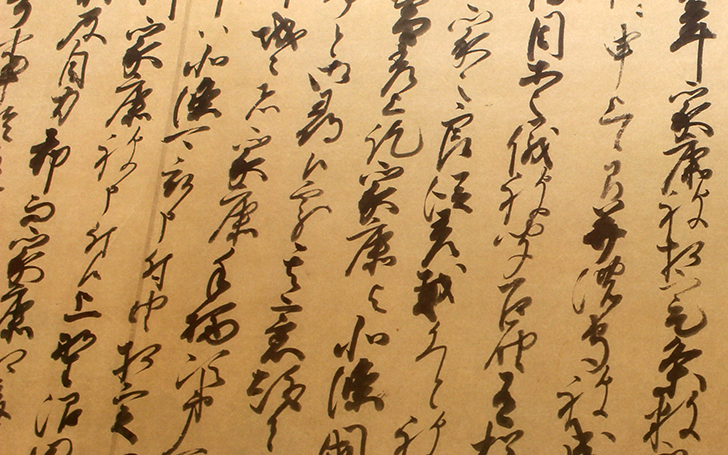39英語で説明したい日本4七草がゆ

色んな日本の物事を英語で紹介するタイピングゲームです
ブログに載せている英文日本紹介記事をタイピングゲームに徐々にアップしていこうと思います。タイピング通じて色々覚えて観光にお役立てると幸いです。よろしければチャレンジください。
日本語訳載せときます。
七草がゆ
七草がゆとは、毎年1月7日の朝に食べられている日本の行事食です。
1月7日は人日の節句という日です。これは中国に由来します。
古来中国では占う対象が正月一日は鶏、二日には犬、三日には羊、四日には猪、五日には牛、六日には馬、七日には人でした。
そのためその日にはその動物を食べず、7日には人の刑罰も行われませんでした。
また中国ではこの7日に7つの草のスープを食べる習慣がありました。それが日本に伝わり若菜摘みという日本の伝統と合わせて七草がゆになりました。
七草は源氏物語を注釈した四辻善成の歌に由来するといわれてます。
ちなみに山上憶良という有名な歌人の歌に由来する秋の七草は食べられず、主に花を見て楽しむものです。
正月で豪華な食べ物を食べすぎた胃を休めるためでもある七草がゆを食べて下さい。
作ったタイピングゲームの一覧はこちらです。
https://typing.twi1.me/profile/userId/113751
あとブログのURLは下記に。関連記事と動画があるのでよろしければご覧下さい。英語ニュース以外もあります。
http://okakyutaro.blog.fc2.com/
日本語訳載せときます。
七草がゆ
七草がゆとは、毎年1月7日の朝に食べられている日本の行事食です。
1月7日は人日の節句という日です。これは中国に由来します。
古来中国では占う対象が正月一日は鶏、二日には犬、三日には羊、四日には猪、五日には牛、六日には馬、七日には人でした。
そのためその日にはその動物を食べず、7日には人の刑罰も行われませんでした。
また中国ではこの7日に7つの草のスープを食べる習慣がありました。それが日本に伝わり若菜摘みという日本の伝統と合わせて七草がゆになりました。
七草は源氏物語を注釈した四辻善成の歌に由来するといわれてます。
ちなみに山上憶良という有名な歌人の歌に由来する秋の七草は食べられず、主に花を見て楽しむものです。
正月で豪華な食べ物を食べすぎた胃を休めるためでもある七草がゆを食べて下さい。
作ったタイピングゲームの一覧はこちらです。
https://typing.twi1.me/profile/userId/113751
あとブログのURLは下記に。関連記事と動画があるのでよろしければご覧下さい。英語ニュース以外もあります。
http://okakyutaro.blog.fc2.com/
関連タイピング
-
出来るだけ明るめの英文ニュースのタイピングです。
プレイ回数108 英語長文583打 -
5分間の速度部門の模擬試験です。打つ速度で級が決まります
プレイ回数94万 長文300秒 -
200/3の答えです
プレイ回数38 158打 -
何秒で全部打てるか挑戦してみよう!
プレイ回数438万 短文かな298打 -
速ければ速いほど強い世界
プレイ回数794万 短文かな87打 -
夏目漱石
プレイ回数17万 長文かな512打 -
Michael Jackson『Beat It』
プレイ回数120 英語歌詞2185打 -
プレイ回数2.5万 短文かな60秒
問題文
ふりがな非表示
ふりがな表示
(Nanakusa gayu)
Nanakusa gayu
(Nanakusa gayu is a traditional Japanese food eaten on the morning of January 7th every year.)
Nanakusa gayu is a traditional Japanese food eaten on the morning of January 7th every year.
(January 7th is a day called human day festival. It originates from China.)
January 7th is a day called human day festival. It originates from China.
(In ancient China, the object of fortune-telling was a chicken on the first day, a dog on the second day,)
In ancient China, the object of fortune-telling was a chicken on the first day, a dog on the second day,
(a sheep on the third day, a boar on the fourth day, a cow on the fifth day,)
a sheep on the third day, a boar on the fourth day, a cow on the fifth day,
(a horse on the sixth day, and a person on the seventh day.)
a horse on the sixth day, and a person on the seventh day.
(Therefore, no animals were eaten on that day, and no human punishment was carried out on the 7th.)
Therefore, no animals were eaten on that day, and no human punishment was carried out on the 7th.
(Also, in China, there was a custom of eating seven grass soups on that day.)
Also, in China, there was a custom of eating seven grass soups on that day.
(It was brought to Japan and combined with the Japanese tradition of picking young greens,)
It was brought to Japan and combined with the Japanese tradition of picking young greens,
(it became Nanakusa Gayu.)
it became Nanakusa Gayu.
(Spring nanakusa are said to be derived from a poem)
Spring nanakusa are said to be derived from a poem
(by Yoshinari Yotsutsuji, who commented on The Tale of Genji.)
by Yoshinari Yotsutsuji, who commented on The Tale of Genji.
(By the way, autumn nanakusa, which are derived from a poem by a famous poet named Okura Yamanoue,)
By the way, autumn nanakusa, which are derived from a poem by a famous poet named Okura Yamanoue,
(cannot be eaten, and are mainly enjoyed by looking at the flowers.)
cannot be eaten, and are mainly enjoyed by looking at the flowers.
(Eat Nanakusa Gayu to rest your stomach after eating too much luxurious food during the New Year.)
Eat Nanakusa Gayu to rest your stomach after eating too much luxurious food during the New Year.








